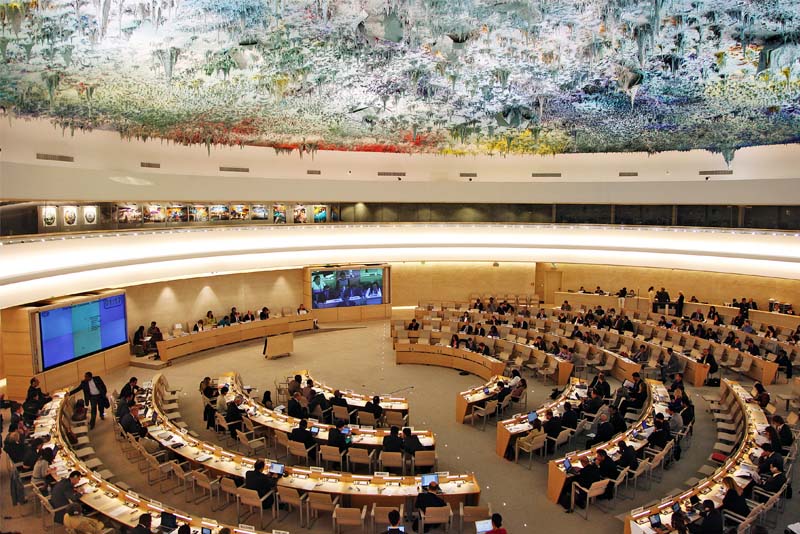How Are We Solving Challenges Facing Children and Education?


Education is key to developing human-centered solutions to global issues such as poverty, climate change, workforce development, and achieving gender equality. The skills of Education Diplomacy, such as listening to the voices of those impacted, working collaboratively across sectors, negotiating common agendas for change, watching global trends, and innovating with integrity, will help us advance education to address these complex challenges.
ACEI’s United Nations Representatives in Geneva, Cassandre Guibord-Cyr and Justine Heckman attended several events in November that highlighted the trends that are shaping the world today and the role of education in promoting a peaceful and prosperous world. Below is a wrap-up of the events they attended.
How well are we listening to children and young people about solving today’s global challenges? A 10-year-old girl from Fiji spoke about the impact of cyclones on her island nation at the Child Rights and Climate Change event that took place on 15 November, during the 2017 United Nations Climate Change Conference (COP23) in Bonn, Germany. The event emphasized that children are among the most vulnerable to the effects of climate change and often have their rights violated, such as lack of access to water and exposure to conflict and violence. At the Empowering Children Roundtable on 21 November, in Geneva, Switzerland, two young representatives from Chile and Albania spoke to the theme of how children can advocate for their right to be protected from all forms of violence.
Addressing complex problems like climate change requires cooperation from all areas and across multiple sectors, where education is recognized as a catalyst for innovating solutions. Education was afforded a thematic day at COP23 on 16 November to harness partnerships for climate change education. High-level leaders at the event stressed that education is key to solving climate change and highlighted the need for the right partnerships to innovate solutions around a common agenda. They also discussed the need to develop future leaders educated in the multiple disciplines of environmental protection who would serve as a bridge across generations to teach about the impact of climate change.
Innovative solutions to education and development challenges often require innovative partnerships. In education, more and more new actors are getting involved to fill gaps in areas such as funding and delivery of services. The Philanthropy in Education: Global Trends, Regional Differences, and Diverse Perspectives inaugural symposium hosted by NORRAG in Geneva at the end of November sought to facilitate greater understanding about the role of private donors in funding education, which traditionally has been the responsibility of governments. Through greater understanding, another goal of the event explored potential collaboration among philanthropic organizations, national policymakers, representatives of international organizations, and academics.
How are global trends, such as the rapid expansion of technology, impacting the landscape of education and education systems? On 2 November, The Economist hosted a panel discussion on The Future of Work to explore the context of rapid technological change and the question “Is education a future-proof route to stable employment?” While the need for certain skills may disappear, others may become more important. The panel included representatives from the business, labor, and human capital sectors who discussed how we need to prepare young people for the future workforce.
How do we innovate solutions to education challenges with integrity? We must address the needs of less advantaged populations such as girls and work toward gender equality across all aspects of society. Rails Girls held a free, two-day workshop in Geneva designed to teach women of any age how to code and program websites to enable them to “build their dreams.” From 17-19 November, Think Tank Hub Geneva hosted a Gender Equality Hackathon as part of their SDG Accelerator initiative. Individuals representing diverse professional experiences came together in a design space for the development of new tools and innovations tackling global and local challenges related to achieving gender equality.
The summary and scope of these events in Geneva, Switzerland, and Bonn, Germany, illustrate the growing prominence of education among the global development community. It has been observed, however, that gaps remain in recognizing education’s relation to crosscutting issues of global development. This will continue to be a challenge for educators and partners, particularly within the urgent context of achieving the Sustainable Development Goals by 2030.
Explore CE International's consulting services.